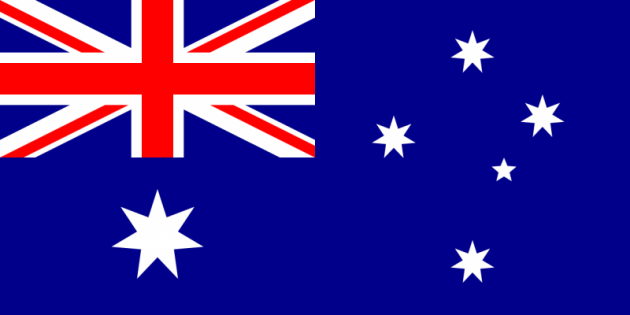Australia's new prime minister Scott Morrison is an evangelical Christian

Australia's newest prime minister Scott Morrison is a church-going evangelical Christian unafraid of standing up for his faith in a country largely viewed as secular.
Morrison became prime minister on Aug. 24 Friday when the Liberal Party voted him in as its leader after ousting Malcolm Turnbull, who formerly held the post and was the party leader, Christian Headlines reported.
The Liberals are a center-right party in Australia, while the Labor Party is more center-left.
Morrison is a member of Horizon Church, a Pentecostal congregation in Sydney where he and his family are involved in ministries.
Church had always been a part of Morrison's life and for the past decade, his spiritual home has been a bustling Pentecostal sanctuary with a cross formed from bright lights, The New York Times reported.
The new prime minister and his faith show a break with tradition in Australia.
He is the first prime minister to come from one of the country's growing evangelical Christian movements, leading many experts and voters to wonder if his Christianity might affect various issues, from foreign policy to social policy.
The 50-year-old national leader was raised in a beachside Sydney suburb, and his family was active in the Uniting Church of Australia when he was growing up. He met his wife, Jenny, in church when he was 12.
SOCIAL CONSERVATIVE
Hugh White, a professor at the Australian National University, told the Times that Morrison is a social conservative, although it remains to be seen how he will governor.
"The question is whether Morrison will choose to make his faith part of his political persona or to what extent he will," White said. "At this point, he doesn't seem to have shoved it in people's faces."
Morrison opposes same-sex marriage but abstained during a vote on its legalization.
The Liberals had promised a vote on the issue if the public supported it in a public survey through the mail.
The bill passed after the survey of 12.7 million people showed 61.6 percent supported it.
When Morrison was first elected to the Australian House of Representatives in 2008, he referenced his Christian faith.
"My personal faith in Jesus Christ is not a political agenda," he said.
"As Lincoln said, our task is not to claim whether God is on our side but to pray earnestly that we are on His. For me, faith is personal, but the implications are social -- as personal and social responsibility are at the heart of the Christian message."
Morrison contended that it had become "fashionable" to stereotype Christians as "extreme" and to "suggest that such faith has no place in the political debate of this country."
He indicated that his Christian faith impacts his political beliefs.
"This presents a significant challenge for those of us ... who seek to follow the example of William Wilberforce or Desmond Tutu, to name just two," he said.
"These leaders stood for the immutable truths and principles of the Christian faith. They transformed their nations and, indeed, the world in the process. More importantly, by following the convictions of their faith, they established and reinforced the principles of our liberal democracy upon which our own nation is built."
Australia, he said at the time, is not a secular country but rather a "free country."
"This is a nation where you have the freedom to follow any belief system you choose. Secularism is just one. It has no greater claim than any other on our society.
FREEDOM OF RELIGION
"As U.S. Senator Joe Lieberman said, the Constitution guarantees freedom of religion, not from religion. I believe the same is true in this country."
Israeli Prime Minister Benjamin Netanyahu was quick to call Morrison on Aug. 29 to congratulate him, inviting him and his wife to Jerusalem, The Jerusalem Post reported.
According to the Israeli Prime Minister's Office, the two leaders emphasized the excellent relations between the two countries, and agreed to work to further strengthen security and economic ties.
Netanyahu and Turnbull had a strong working relationship, with Netanyahu being the first sitting Israeli prime minister to visit Australia, when he did so in February 2017.
Nine months later Turnbull visited Israel to take part in the centenary ceremony of the Battle of Beersheba.
Morrison is considered a strong supporter of Israel, a country he has visited in the past and no change is expected to happen in the strong relations between the two countries.